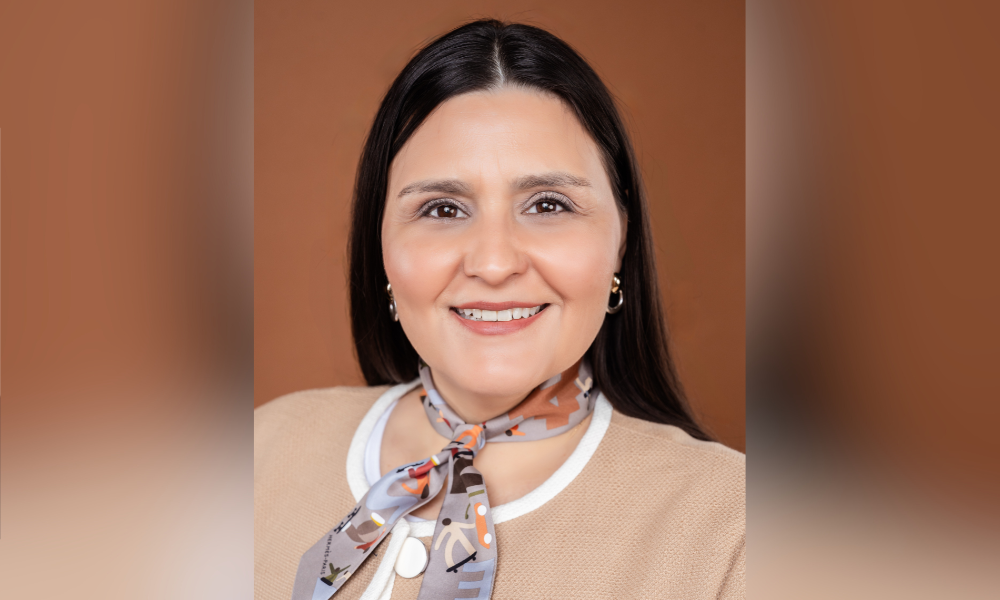While societal health has understandably been at the forefront of the minds of many, both private citizens and public officials, recent years have seen a renewed focus on mental health and wellbeing that was often lacking in the none-too-recent past. Furthermore, the care of vulnerable people and seniors has been under the microscope to a greater extent now than at any point in recent history. A key tool for protecting the rights of those lacking capacity in Canada is the guardianship – a legal mechanism that sees the courts appoint a trustee to act on behalf of those who cannot act for themselves. Guardians and guardianships are still poorly understood by many people today, so we asked Claire McNevin of WeirFoulds LLP to explain to us what they are, how they are created and operate, and how they can help prevent abuse and exploitation of society’s most vulnerable.[1]
What types of legal guardianships are there, and what are the scenarios in which they are created?
There are two forms of legal guardianship for adults Ontario: (1) guardians for property and (2) guardians for personal care. Depending on the form of guardianship, guardians are appointed as substitute decision makers for an individual who is mentally incapable of making property or personal care decisions for themselves. The guardianship system in Ontario is governed by the Substitute Decisions Act (“SDA”).[2]
Capacity is decision specific. In Ontario, the standard to find someone to be incapable is defined by the SDA. An individual will be found mentally incapable if they are not able to understand information that is relevant to making a decision about their property or personal care, or where they are not able to appreciate the reasonably foreseeable consequences of a decision or lack of decision in those areas.
Where someone has executed a Power of Attorney (“POA”) for property and/or personal care, the individuals or institutions named in their POA will be their substitute decision makers if they become mentally incapable. The guardianship system typically kicks in when someone does not have a POA, or where the persons named in the POA cannot act or they have been removed as substituted decision makers.
What are the processes for obtaining them, and how can they be removed?
To become someone’s guardian, you must bring an application in the Ontario Superior Court of Justice seeking to be appointed. Alternatively, if the Public Guardian and Trustee (“PGT”) is already acting as someone’s guardian, their spouse, partner, or relative can apply to the PGT to replace the PGT as guardian. The Office of the PGT is branch of the Ministry of the Attorney General which is responsible for protecting mentally incapable people in Ontario and is the default guardian for Ontarians in certain circumstances,[3] or where no one else can act on their behalf.
Under the SDA, adults are presumed to be capable of managing their property and personal care. The onus is on the applying guardian to establish that the individual is not mentally capable. The application requires affidavit evidence which addresses:
- the person’s incapacity;
- the need for a guardian;
- who the guardian should be, and what that proposed guardian’s plans are for the management of the person’s finances (set out in a Management Plan); and,
- how personal care decisions will be made (set out in a Guardianship Plan). Guardianship applications generally require medical evidence of incapacity and typically include an assessment from a capacity assessor.
If not available, the applying guardian can ask that a capacity assessor be appointed to meet with the alleged incapable person to assess them, however they must provide the foundation for their concerns as capacity assessment are seen by the court as intruding on to an individual’s privacy. Guardianship applications must be served on the alleged incapable person, all immediate family members of the alleged incapable person, and the PGT.
Guardianship can end by court application demonstrating that the individual is no longer incapable of managing their personal care or property and that guardianship is no longer necessary. This application can be brought by the guardian, the formerly incapable person, or a partner or family member. A guardian can also be replaced through court application if an alternate guardian or the PGT challenges their suitability for the role and argues that they are not properly managing the affairs of the incapable individual.
What are the checks and balances of the guardianship system to prevent abuse or exploitation of the incapable person by their guardian? What rights do interested parties that are not guardians have to help ensure that the arrangement is carried out honestly and properly?
The SDA includes several safeguards which are meant to protect the incapable person and to define the parameters of the substitute decision maker’s authority to prevent mismanagement and abuse.
First, the SDA requires that a guardian not be appointed where there is an alternative option which would be less restrictive on the person’s decision-making rights, such as an existing power of attorney arrangement. Further, the SDA hold guardians and attorneys for property/personal care to a fiduciary standard and requires that their powers and duties be “exercised and performed diligently, with honesty and integrity and in good faith, for the incapable person’s benefit.” Guardians and attorneys are also required to encourage the incapable person to participate in decision-making and to consult with supportive family members and friends of the incapable person and foster contact between them. Guardians are required to act within the scope of the Guardianship and Management Plan which they submitted in their initial applications.[4]
Second, the SDA includes notice requirements for guardianship applications. The applying guardian must serve their application on the alleged incapable person, their attorney under a continuing POA (if they have one), their existing guardian (if they have one), the PGT, and the alleged incapable person’s spouse, partner, children, parents, and siblings, as applicable. Any of the persons served with the application can be a party to the application, meaning they can participate and provide evidence on the matters in issue.
Further, a common condition when someone is appointed as guardian of property of an incapable person is a requirement that they apply to “pass” accounts on a periodic basis. Guardians for property must keep accounts of their collection, management, and use of the incapable person’s assets; passing those accounts means getting court approval of them. An application to pass accounts must likewise be served on the incapable person and the PGT who can then review and potentially object to the management of property if there are issues.
Third, the SDA provides a mechanism for an alleged incapable person to be represented by independent counsel. Referred to as section three counsel (a reference to s. 3 of the SDA), these counsel are engaged when a person is alleged to be incapable and does not have legal representation in a proceeding. In that instance, the court may order the PGT to arrange for counsel for that individual.
Unlike in some other jurisdictions, it is the Office of the PGT, not the court, arranging independent counsel. Due to its province-wide, and specialized expertise in guardianship and capacity issues, the Office of the PGT is presumed to have the requisite skills and knowledge to select appropriate counsel for each individual case. Every alleged incapable person’s circumstances are different (for example, they may have complicated corporate assets or be in the middle of divorce proceedings) and the PGT is presumed to be in the best position to find local counsel who have the appropriate expertise to understand that individuals circumstances and provide appropriate legal advice.
Section three counsel are experienced in estates and capacity law. Their role is to ensure the alleged incapable person’s independent views and preferences are before the court, as well as to test the evidence presented. Section three counsel are not interim guardians or decision makers for the alleged incapable person but are rather counsel who ensure that the alleged incapable can participate meaningfully in the court process. This includes advising the individual that they can oppose an application to have them declared incapable or oppose a particular person being appointed as their guardian.
Finally, the SDA provides the PGT with the duty and the powers to investigate “any allegation that a person is incapable” with respect to either property or personal care and that “serious adverse effects are occurring or may occur as a result”. If the PGT’s investigation reveals reasonable grounds to believe that a person is incapable and that serious adverse effects are or might occur, the PGT must apply to the court for a temporary guardianship. The SDA gives the PGT significant discretion in determining the steps necessary for an investigation, as well as powers of entry and access to records for the purposes of carrying out these investigations.
Despite these safeguards, there remains the potential for abuse by guardians, or attorneys acting under powers of attorney. Substitute decision makers actions are not always supervised and, once appointed, review of their actions by the court or the PGT can be infrequent.
The recent headlines surrounding Britney Spears have brought the issues of conservatorship to the forefront of mainstream discussion. How are guardianships in Ontario different from conservatorships, and how are they similar? Do you believe that this newfound focus on agency and substitute decision-makers will cause changes to existing Ontario law?
The Britney Spears case brought the real and potential issues with guardianship (referred to as conservatorship in California) and substitute decision making into sharp focus. While Britney Spears’ circumstances are uncommon in capacity cases, due to her young age and notoriety, her case exposed the kinds of disturbing circumstances that can develop when someone loses agency over their own lives and there is a lack of transparency and accountability for the individuals who are given authority over another person’s decisions.
While I did not undertake a thorough review of California’s conservatorship laws, the broader authority and involvement of Ontario’s PGT in the legislative framework in Ontario sets it apart from California. Further, in Britney’s case, her conservators and the court considered her “susceptibility to undue influence” as support for the continued need for a conservator.[5] In Ontario, susceptibility to undue influence is not a proper factor to consider when determining if someone is mentally incapable.
Just as many people avoid making a will because they do not want to contemplate what will happen after they pass, many people do not contemplate what will happen if they become incapable. Consequently, many people do not consider what mechanisms are in place to manage the care and property of incapable individuals. It takes an extreme story like the conservatorship of Britney Spears to trigger that contemplation.
The incidence of abuse by substitute decision makers in Ontario is relatively understudied. In the Law Commission of Ontario’s 2017 discussion paper “Abuse and Misuse of Substitute Decision-Making Powers”, [6] the Commission surveyed elder law and disability law stakeholders about their concerns with Ontario’s substitute decision maker laws. The Commission found that stakeholders generally felt formal regulations and duties were appropriate but noted that there was widespread perception that these duties were not being properly implemented. The Commission noted three areas of concern:
- Lack of understanding of the law: both guardians and those acting under POAs are frequently unaware of their roles and responsibilities under the SDA. They can therefore fail to respect the limits of their authority or to meet their procedural duties.
- Lack of effective monitoring mechanisms: the mechanisms in place to monitor the activities of guardians and attorneys are limited and are largely “passive” rather than proactive. While court-appointed guardians may be required to pass accounts, on notice to the PGT and the incapable individual, privately appointed POAs may never be required to pass accounts.
- Lack of effective redress mechanisms: where abuse or misuse is detected, those working in elder and disability law have expressed that the means for addressing it, typically through court applications, may be inadequate, slow, or inaccessible. Further many require the incapable person to initiate action, but they may have limited access to rights advice and legal counsel due to their circumstances.
These issues are constant in capacity and disability law and there are few, if any, easy fixes. Despite the mainstream interest in Britney Spears conservatorship, it has not sparked a parallel examination of capacity and substitute decision making laws here in Ontario. What the Britney Spears conservatorship case did do was bring into focus some of the competing questions that animate substitute decision making and guardianship policy – when should someone lose their agency? Who determines our “best interests”? how do we protect vulnerable people? And how do we protect their independence at the same time?
Learn about the different long-term disability benefits in Ontario, how you qualify, and other financial details in this article.
All of the safeguards legislated into Ontario’s guardianship system, although not perfect, are intended to ensure that incapable persons (and those alleged to be incapable) have agency in the guardianship process while also ensuring that people who cannot manage their property or care are supported.
***
 Claire McNevin is an associate in the litigation practice group at WeirFoulds LLP. She advises clients on wide range of commercial litigation matters, with a focus on wills, trusts and estates law.
Claire McNevin is an associate in the litigation practice group at WeirFoulds LLP. She advises clients on wide range of commercial litigation matters, with a focus on wills, trusts and estates law.
***
[1] The content of this article is intended to provide a general guide to the subject matter. Specialist advice should be sought about your specific circumstances.
[2] The term "guardianship" is also used in respect of children. In Ontario, guardianships in respect of children are governed by the Children's Law Reform Act. Guardianships of children are outside the scope of this article.
[3] For example where a certificate is issued under the Mental Health Act certifying that a person who is a patient of a psychiatric facility is incapable of managing property
[4] There is a process to amend a Guardianship Plan or a Management Plan if circumstances change and this becomes necessary.
[5] https://www.nytimes.com/2021/06/22/arts/music/britney-spears-conservatorship.html





